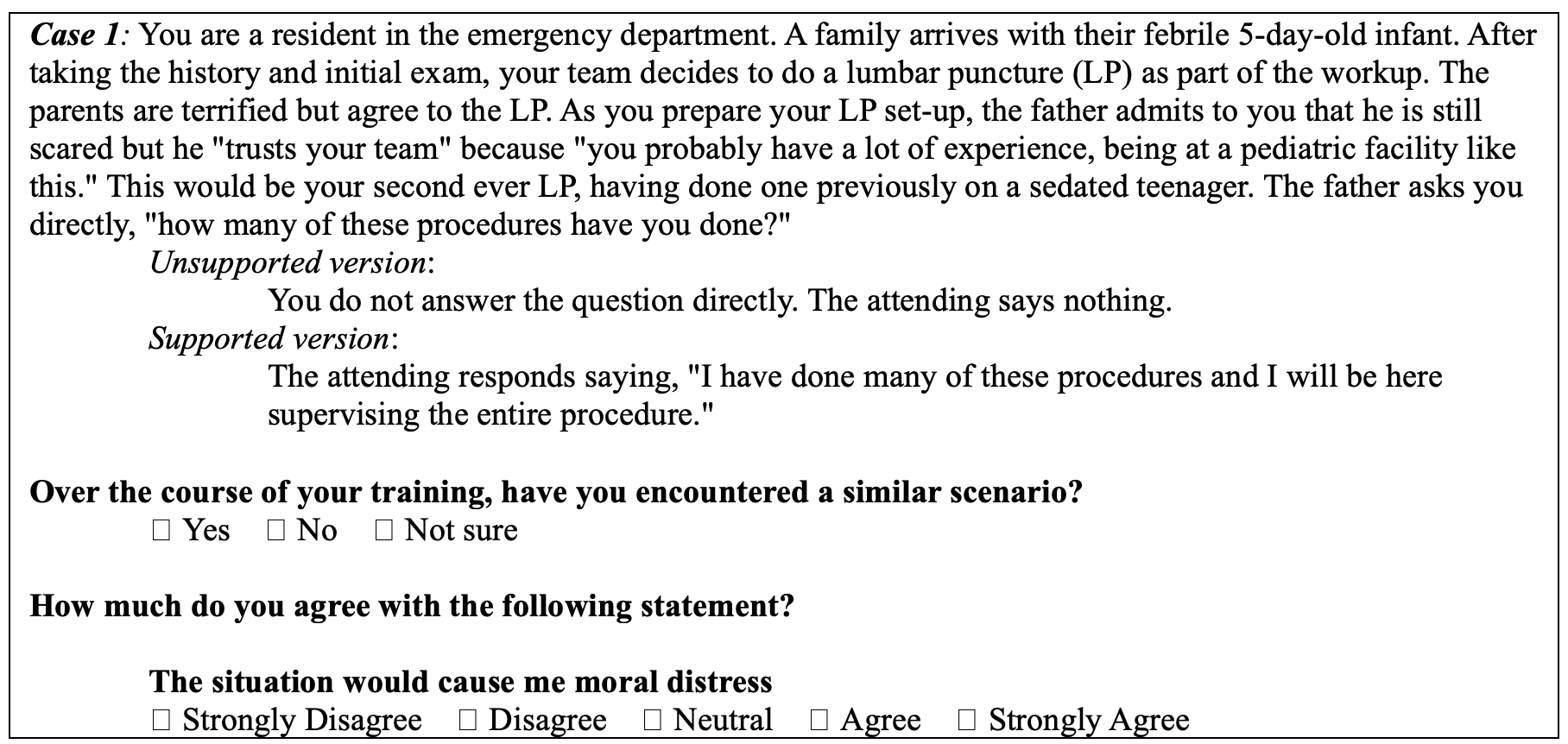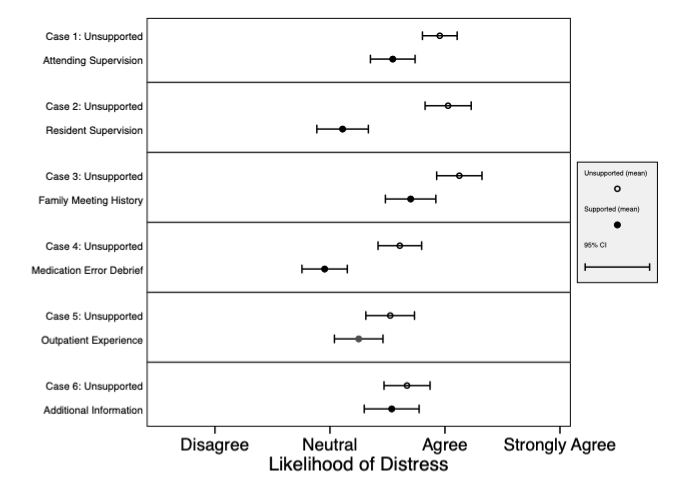Clinical Bioethics
Clinical Bioethics 1
418 - Simple Interventions for Pediatric Residents’ Moral Distress: A randomized, controlled experiment
Friday, April 28, 2023
5:15 PM - 7:15 PM ET
Poster Number: 418
Publication Number: 418.106
Publication Number: 418.106
Katharine P. Callahan, Children's Hospital of Philadelphia, Philadelphia, PA, United States; Awo Akosua K. Layman, Childrens Hospital of Philadelphia, Media, PA, United States; Pamela G. Nathanson, Childrens Hospital of Philadelphia, Philadelphia, PA, United States; Lara Lechtenberg, Childrens Hospital of Philadelphia, Philadelphia, PA, United States; Douglas L.. Hill, The Children's Hospital of Philadelphia, Philadelphia, PA, United States; Chris Feudtner, Children's Hospital of Philadelphia, Philadelphia, PA, United States

Katharine Press Callahan, MD (she/her/hers)
Fellow, Neonatology and Ethics
Children's Hospital of Philadelphia
Philadelphia, Pennsylvania, United States
Presenting Author(s)
Background: Pediatric residents are at high risk for moral distress, knowing the right thing to do but feeling unable to do it, which is associated with poor patient care and burnout. Researchers have proposed numerous interventions to reduce distress, but few (if any) have been supported by experimental evidence.
Objective: To evaluate the effect of various simple supports on pediatric residents’ moral distress using a randomized, controlled experimental design.
Design/Methods: We conducted a study of pediatric residents using split sample hypothetical vignettes. The questionnaire contained six vignettes describing clinical scenarios expected to cause moral distress (Figure 1). For each case, participants were randomly assigned to see one of two versions that varied only regarding whether they included a supportive intervention. Interventions were either a statement by a supervising physician or a residency program structural element. After reading each of the six cases, participants reported whether they had encountered similar scenarios in practice and their level of associated moral distress.
Results: Two hundred and twenty respondents from five residency programs completed the experiment (Table 1). Cases were perceived to represent common scenarios that cause distress for pediatric residents. The addition of a supportive statement reduced moral distress in four of the six cases (Figure 2).
Conclusion(s): In this proof-of-concept study, simple yet effective interventions provided the resident with both empathy and shared responsibility, in partnership with a supervisor, or shared accountability with structural program elements. Such interventions can be viewed as offloading some moral responsibility. Interventions that were purely informational were not effective in reducing moral distress.



